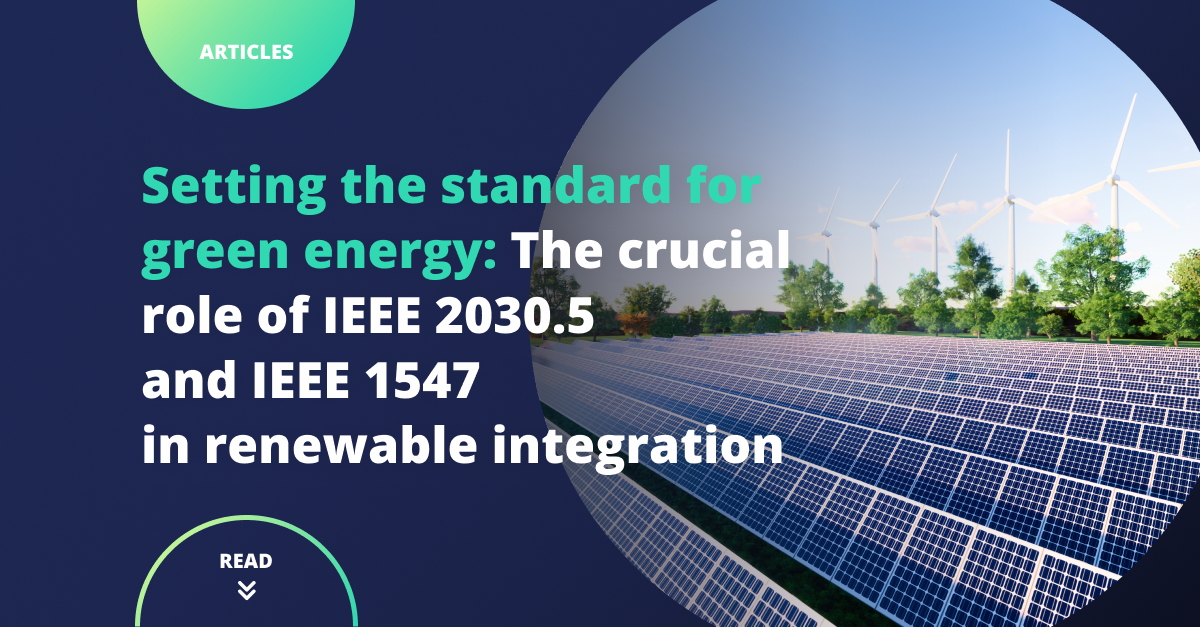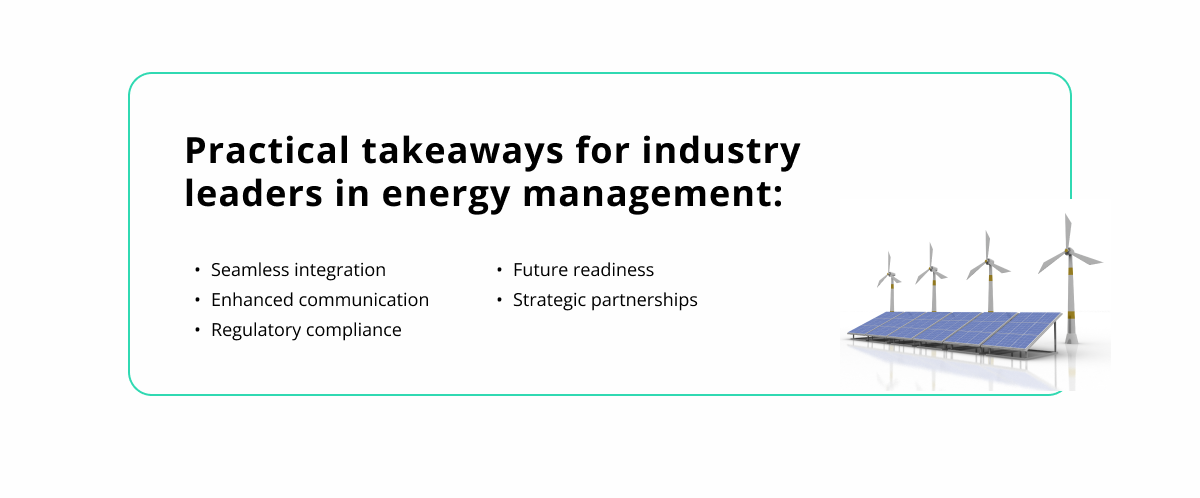Setting the standard for green energy: the crucial role of IEEE 2030.5 and IEEE 1547 in renewable integration

The renewable energy landscape is undergoing a significant transformation, propelled by advancements in technology and the increasing demand for sustainable energy solutions. As the world shifts towards a greener future, the importance of integrating renewable energy sources seamlessly into existing grid infrastructures is crucial. This integration is supported and standardized by pivotal frameworks such as the IEEE 2030.5 and IEEE 1547 standards, which enhance the interoperability and efficiency of smart grid technology.
Understanding the Impact of IEEE 2030.5 standard on renewable energy integration
The IEEE 2030.5 standard, commonly known as Smart Energy Profile 2.0, is at the forefront of facilitating effective communication between renewable energy sources and the smart grid. This standard is particularly vital for technology companies, energy developers, and manufacturers of battery storage systems. By facilitating robust communication, IEEE 2030.5 enhances the reliability and scalability of distributed energy resources (DERs) and virtual power plants (VPPs), crucial for maintaining grid stability amid fluctuating energy inputs.
The crucial role of IEEE 1547 in smart grid technology: from regulatory compliance to grid resilience
Alongside IEEE 2030.5, the IEEE 1547 standard plays a pivotal role in shaping the future of smart grid technology. This standard offers exhaustive guidelines for the interconnection and interoperability of Distributed Energy Resources (DERs) with electric power systems, facilitating a smoother and more efficient grid integration. The IEEE 1547 standard is instrumental in supporting the safe and effective incorporation of renewable energy sources, addressing several key facets of grid integration:
- Power Quality: Ensures that the electricity generated from renewable sources does not adversely affect the grid’s stability or the quality of power received by consumers. This includes maintaining voltage levels, frequency, and waveform consistency, crucial for modern electrical devices and systems.
- System Safety: Enhances the overall safety of the electrical grid by providing detailed safety mechanisms and guidelines to protect both the grid infrastructure and the personnel who operate and maintain it. This involves specifying the protective measures required to prevent accidents and failures.
- Islanding Protections: Specifies the requirements for systems to detect and react appropriately to grid separations. Islanding protection is vital to prevent DERs from continuing to power a local area when the main grid has shut down, thereby avoiding potential safety hazards and ensuring system reliability.
- Compliance with Grid Standards: IEEE 1547 ensures that all interconnected resources meet stringent grid compliance standards, making it easier for utilities to manage diverse energy sources without compromising on service quality or reliability.
By addressing these critical aspects, IEEE 1547 not only ensures compliance with current regulatory requirements but also bolsters the resilience and adaptability of power systems. This prepares electric grids around the world to handle the increasing influx of renewable energy sources, such as solar and wind power, thereby supporting sustainable energy goals and promoting a more resilient energy infrastructure.

The technological expertise in standard compliance
Navigating the complexities of these standards requires a blend of technical expertise and strategic foresight. Companies like Codibly are instrumental in bridging the gap between current practices and the stringent requirements of these new standards. By offering consultancy services and developing technology solutions that adhere to IEEE standards, Codibly helps clients ensure their systems are not only compliant but also primed for future advancements in the energy sector.
Real-life example: IEEE standards role for solar farms
Consider the case of a solar farm integrating with the smart grid using IEEE 2030.5. This standard allows solar inverters to communicate in real-time with the utility’s energy management systems, adjusting output based on grid demand and optimizing energy production. IEEE 1547 ensures safe grid connection, with protocols for fault detection and automatic disconnection, thus enhancing grid reliability and compliance.
Practical takeaways for industry leaders in energy management
In today’s rapidly evolving energy sector, staying at the forefront of technology and regulatory standards is crucial for industry leaders. As we dive deeper into the transformational impact of renewable energy on the global power infrastructure, it becomes essential to focus on strategic practices that not only enhance operational efficiency but also ensure compliance and market readiness. Here are several key takeaways that illustrate how adhering to established industry standards can significantly benefit organizations within the energy sector:
- Seamless integration: Adopting IEEE 2030.5 and 1547 standards allows for smoother integration of renewable energy resources with power grids, enhancing grid reliability and energy management capabilities.
- Enhanced communication: These standards provide a common communication protocol that enables diverse systems to exchange information effectively, crucial for real-time energy management and maintaining smart grid stability.
- Regulatory compliance: Alignment with these standards not only meets regulatory demands but also opens up new market opportunities, enhancing the competitive edge of businesses in the renewable energy sector.
- Future readiness: The ongoing evolution of these standards necessitates continuous updates and training to handle emerging technological and regulatory challenges effectively.
- Strategic partnerships: Engaging with experienced partners like Codibly can mitigate risks associated with technology and compliance, ensuring focused growth and innovation in renewable energy projects.

Using standards for sustaiable energy: the key to leading in the renewable revolution
As the adoption of renewable energy grows, the strategic implementation of standards like IEEE 2030.5 and IEEE 1547 is paramount. These standards are not merely technical requirements but are crucial tools for harnessing the full potential of renewable energy. By ensuring compatibility, enhancing security, and promoting efficient operations, these standards lay the groundwork for a sustainable and successful energy future. Engaging with sector experts and leveraging the right technologies will propel companies to lead in the renewable energy revolution, reaping benefits that extend well beyond mere compliance.
Explore other articles on IEEE standards or get in touch with one of our experts if you’d like to discuss demand response solutions!
contact us
Need expert guidance on your next energy project?
Reach out to us and discover how Codibly can offer tailored solutions to drive your business.
